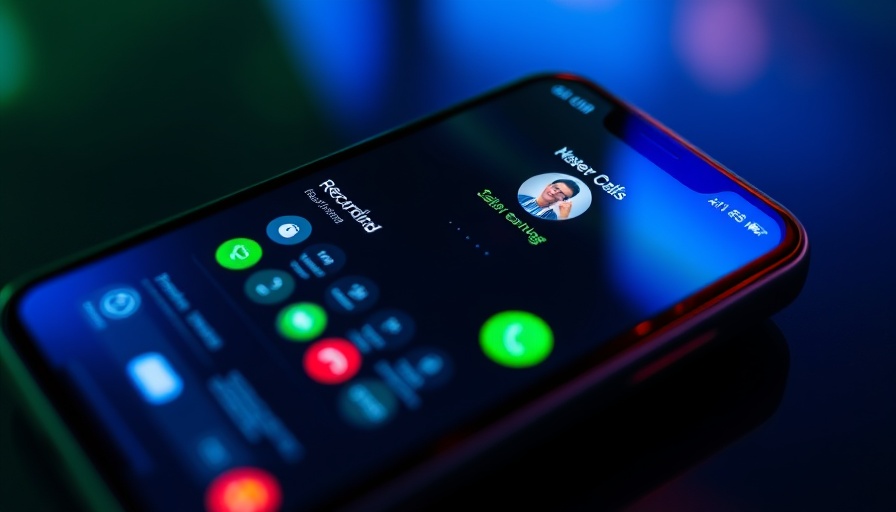
Neon Mobile: The App Paying You for Your Phone Conversations
In an age where data privacy is constantly debated, Neon Mobile has introduced a controversial monetization model that is stealing attention—and users—from around the globe. With an enticing offer of up to $30 a day just for recording your phone conversations, it’s no wonder this app has stormed its way to the top of the App Store charts, currently ranking No. 2 for free social networking apps.
A Double-Edged Sword: Data and Privacy Concerns
Neon Mobile’s pitch is simple: why let telecom companies profit off your conversations when you can too? By allowing the app to record your calls, users supposedly receive compensation while the app sells the anonymized data to companies developing AI technologies aimed at enhancing machine learning models. However, the perceived privacy safeguards raise red flags for experts. While Neon claims that personal details are stripped from the recordings, the inherent risks of collecting and selling our data for profit remain a concern.
Privacy advocates emphasize caution; as the saying goes, "nothing that starts with 'we record everything you say' has ever aged gracefully." News articles highlight a past incident that caused Neon to temporarily shut down—pointing to how vulnerable such a service can be. The challenge lies in balancing the allure of easy income against the potential for privacy violations.
The Mechanics of Monetization: How It Works
Users earn 15 cents per minute for calls made with non-Neon users, and this increases to 30 cents per minute for calls made to fellow Neon users. To reach the maximum payout of $30 per day, users must engage in around 100 minutes of calls daily with other Neon users. Some have even joked about turning it into a part-time job through strategic conversations aimed solely at earning steady cash. However, such casual discussions carry broader implications beyond just financial gain.
A Cautionary Tale: What Past and Present Reveal
The ethical implications of allowing an app to record your calls were poignantly discussed in articles from trusted sources. For instance, a feature on Malwarebytes reiterated the importance of being mindful of what you're sharing—not just with the company, but with the conversation partners as well. Clean and clear disclosures must be inclusive, meaning both individuals should be informed about the recording, considering the legal ramifications associated with covert recordings.
Spotlight on Trust: Unpacking User Agreements
With concerns stemming from its ambiguous privacy policy, users need to thoroughly scrutinize what they are signing up for. Neon grants itself extensive rights over user content, rendering questions about true anonymity somewhat dubious. As reviewers caution, misleading claims about data usage abound in various app agreements. Thus, users might find themselves surrendering more than what they bargained for, risking personal information in favor of minimal financial return.
Future of Apps Like Neon: Ethical Considerations Ahead
The rise of apps like Neon Mobile does not merely signal a new era of data commodification; they reflect a socioeconomic shift where personal data is seen as currency. This presents an ethical quandary: is it worth trading snippets of our daily lives for a few extra dollars? Users must weigh the potential rewards against the privacy risks they engage with while participating in this unusual marketplace.
The Changing Nature of AI and Content Creation
In light of Spotify's recent measures to filter out AI-generated content, the backdrop of AI's intersection with human creativity also points to broader concerns about control over creative industries. As apps like Neon erode the boundaries of personal privacy, the increasing urgency for responsible data protocols has never been clearer. All users should consider their role in fostering ethical practices surrounding data and content usage in the rapidly evolving technological landscape.
The question remains—will enough people cash in on their conversations to normalize such practices, or will the implications of sacrificing privacy deter potential users? Clear understanding and vigilance will be paramount as society adapts to these technological trends.
 Add Row
Add Row  Add
Add 




Write A Comment